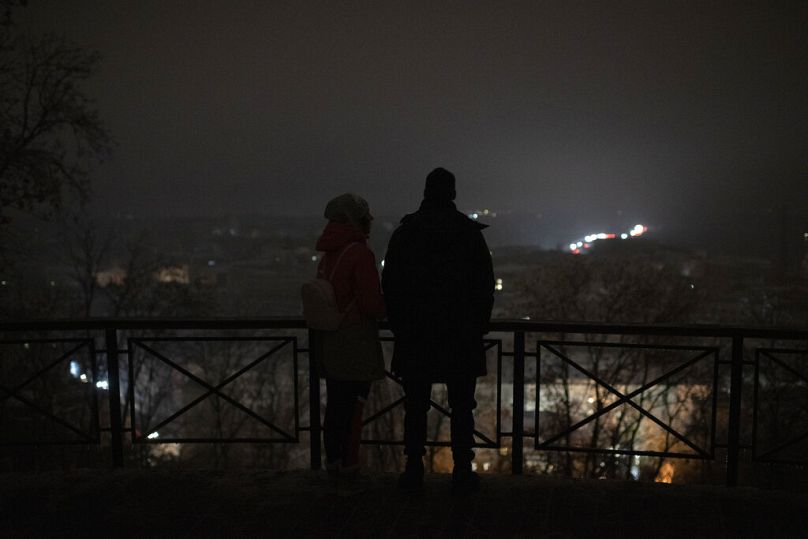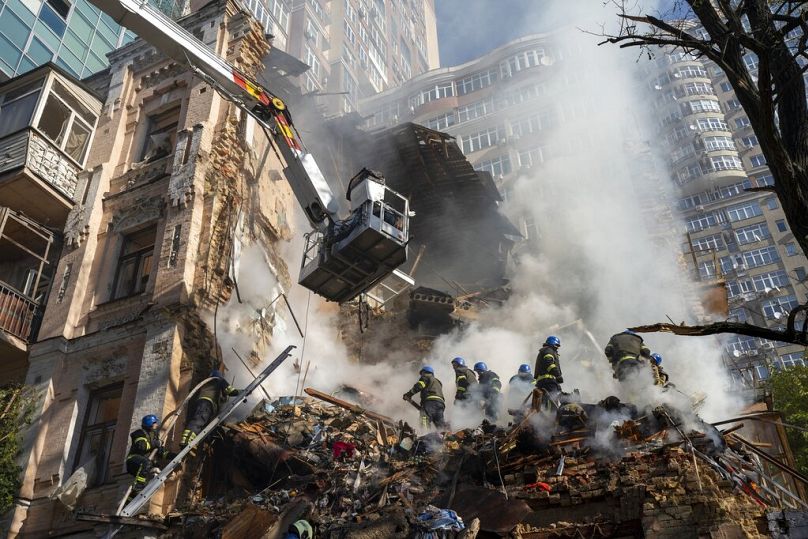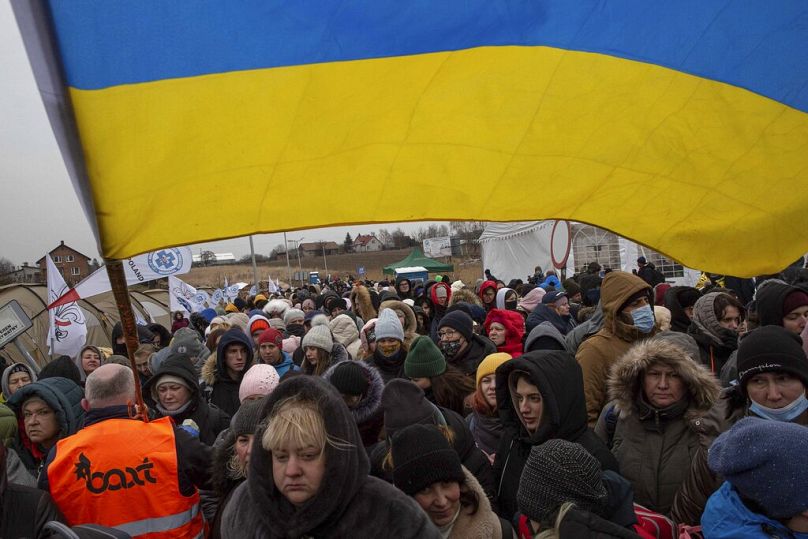The people of Ukraine are relying on EU leaders for support as much as ever. Europe's leaders must keep up the momentum to protect the millions in peril, IRC's Michael Despines writes.
“You go to bed and you’re afraid, you wake up and you pray,” explains Olga, a 57-year-old woman from Mykolaiv in Ukraine.
 ADVERTISEMENT
ADVERTISEMENT
 ADVERTISEMENT
ADVERTISEMENT
She is not only battling a devastating war in her country but a cancer diagnosis that she believes has been exacerbated by “the stress, the nerves and the cold”.
Like millions of others inside Ukraine, she has been worried about making it through the winter months, during which temperatures might drop well below freezing.
“We pray to God that there is electricity and gas, that everything is over as soon as possible,” she says.
While news about global leaders visiting Kyiv and military developments in Ukraine regularly make the headlines, everyday stories of pending humanitarian needs like Olga’s are too often pushed into the margins.
Yet while we rarely hear these voices, many people — including close to six million who have been forced from their homes — remain inside Ukraine in dire conditions, as the ongoing violence and freezing conditions compound their suffering.
Despite spring on the horizon, the suffering is far from over
Over the last few months, waves of shelling targeting civilian infrastructure have knocked out power across major cities in Ukraine, including Kyiv and Kharkiv.
Vast parts of the country have been plunged into darkness, with water supplies and heating systems disrupted.
According to an IRC needs assessment conducted in November, 25% of internally displaced people interviewed did not have access to adequate heating, and more than 60% reported their houses were damaged, making it even harder to keep safe and warm and forcing many into collective shelters.
What we see inside the country is that wintry conditions are amplifying the challenging humanitarian situation in Ukraine and sparking yet more displacement and increasing needs amongst those who stay.
At the same time, the lack of functioning phone networks and internet access has made it even harder for the IRC’s teams to communicate with local partners, suppliers and clients who are already often difficult to reach due to the volatile security situation and other physical access constraints, creating even more barriers to delivering aid to the people who need it most.
With spring on the horizon, many will be hoping for less painful months ahead. Yet, even if the weather improves, the sky-high level of existing needs will not magically disappear.
Shelling looks set to continue, houses and infrastructure will still be damaged, and the land contaminated with mines will take decades to be cleaned.
Moreover, amidst warnings of a likely escalation of the war around the one-year mark in late February, it’s clear that Ukraine is fraught with dangers, and serious protection risks remain.
While the situation is harrowing, robust international support has prevented the worst-case scenario from occurring in Ukraine.
However, that will only remain the case so long as the international community continues to adequately support the humanitarian response both within the country and beyond.
Protecting civilians must remain number one priority
First of all, civilians and civilian infrastructure must never be a target.
The IRC, in tandem with the humanitarian community, is calling for European leaders to continue urging parties to the international armed conflict to uphold International Humanitarian Law and prioritise protecting civilians.
Attacks against civilian infrastructure, including schools and hospitals, must be systematically condemned and those responsible held accountable.
Secondly, donors must continue and significantly ramp up financial support, ensuring that this is flexible enough to adapt to the rapidly changing context and shifting needs in Ukraine.
This must include funding for protection programming which was only 63% covered in 2022, and cash assistance to help families meet their basic needs, including food, shelter and warmth.
The funding needs to directly reach the NGOs, local civil society groups and women-led organisations who are working on the frontline of the Ukraine response.
Importantly, it must not come at the expense of other crises across the globe, many of which have spiralled further as a consequence of the war in Ukraine.
EU member states should do better than rolling back support
And finally, more than 80% of people forced to leave their homes in Ukraine hope to return one day.
However, even in parts of the country no longer experiencing active hostilities, there is widespread mine contamination, severe infrastructure damage, and the ongoing risk of airstrikes.
People should not be pushed to return until they feel they are safe to do so. Instead, everyone must be empowered to make informed and voluntary choices about their future.
As the war approaches its second year and supporter fatigue begins to set in, it’s worrying to see governments in some EU states begin to roll back support for people from Ukraine, including new rules in Poland requiring some Ukrainian refugees to cover up to 75% of their accommodation costs.
We’re calling on EU leaders to double down on their efforts to protect the 8 million people forced from Ukraine by investing in reception capacity, meeting urgent needs, and providing early integration support to empower people to rebuild their futures.
With no end to the war in sight and yet another possible escalation likely in the months ahead, the people of Ukraine are relying on EU leaders for support as much as ever.
As officials meet next week to discuss humanitarian aid in the country, it’s critical they keep up the momentum to protect the millions like Olga, in Ukraine and beyond.
Michael Despines is International Rescue Committee's Regional Director for Ukraine response. He has spent over three decades working in different humanitarian settings around the world, previously in Asia and Africa.
At Euronews, we believe all views matter. Contact us at view@euronews.com to send pitches or submissions and be part of the conversation.













